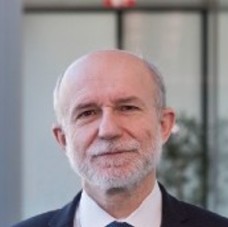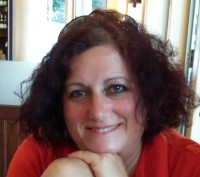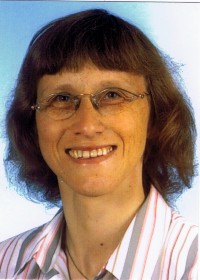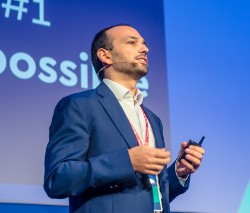
Professor Federico Corni, Free University of Bozen-Bolzano
Title: The Role of Metaphors in Teachers Education in Physics
Abstract:
We like to think that what we say, think and understand refers directly to an (external) reality: language and thought are assumed to be literal. However, the large majority of linguistic expressions we use show that our mind must be working (mostly) figuratively: it makes use of the schematic figures, forms, or shapes created in experience. Thus, thought is figurative and imaginative in an important way. And this applies to scientific thought as well.
Conceptual metaphor is one of the fundamental tools of our figurative mind. It is important to realize that metaphoric thinking is not a means of avoiding formal scientific though so a child or a layperson would understand what we are talking about. Properly understood and applied, metaphor does not lead to misconceptions. Rather, it creates the foundation for proper formal thought.
Macroscopic physics is full of metaphorical expressions – they are unavoidable: for example, energy is conceptualized as a metaphoric SUBSTANCE, when we say that the problem of using energetic is not a matter of quantity but of storage and distribution of the large amount of energy coming from the Sun; or temperature is a VERTICAL SCALE, when we say that it rises, or it falls. Besides content knowledge, one of the fundamental goals of primary physics education must be the appropriation and the mastering of the elementary figures of mind such as CONTAINER, SUBSTANCE, SCALE, FORCE, CYCLE…, which are at the root of the scientific (human) thought. As a consequence, teachers should be introduced to figurative thought and to its power for education. This should help teachers develop (i) a deeper understanding of the discipline and (2) the ability of speaking to and hear from their pupils’ minds.
Biography:
Federico Corni is a professor of Didactics of Physics at the Faculty of Education of the Free University of Bozen-Bolzano in Italy. His main research interest concerns the development of an innovative physics course and materials for kindergarten and primary school teacher education based upon an imaginative (metaphoric and narrative) approach to the natural and technical world, with interdisciplinary contributions from the other sciences and the humanities. He is the scientific head of the “Fisica in Moto” industrial educational Lab at Ducati Factory in Bologna. He is co-leader, together with Stamatis Vokos, of the GIREP Thematic Group “Physics Preparation of Teachers in Grades K-6” and responsible of several local and international projects.

Professor Suzanne Gatt, University of Malta
Title: Young children interacting with the Physical world
Abstract:
Children, from a young age, express an interested in how the world works. This is often reflected in their play, with curiosity leading them to experience, engage with and explore physical phenomena. Many tend to associate topics such as air, pressure, electricity, forces etc. with secondary students learning Physics. Developments in primary science education, however, show that younger children already possess ideas, even if many are alternative frameworks, about how these physical phenomena work. These ideas can be used to provide primary children with the opportunity to inquire about how these physical phenomena are affected by different factors and conditions. The presentation will consider examples from the EU funded project Pri-Sci-Net of how inquiry activities have been designed and implemented to promote better understanding of physical concepts among primary level children between 5-11 years. It will also consider how inquiry skills which are so important to learning physical sciences at higher levels can start to be nurtured from primary level.
Biography:
Prof. Suzanne Gatt is a Professor in Primary Science and Environmental education at the Faculty of Education, University of Malta. She is a teacher-trainer in primary science with a particular interest in inquiry-based learning. Prof. Gatt has published internationally in the area of science and environmental education at primary level. She is currently co-content editor of the Journal of Emergent Science of the ASE, UK. Prof. Gatt has also implemented a number of EU funded projects such as Comenius and ERASMUS+. She has also coordinated the 3 million FP7 EU funded project Pri-Sci-Net. This project involved the development of a number of inquiry-based learning activities in science for children between ages 5-11 years. The project also included the training of primary teachers on how to implement these inquiries.

Professor Gesche Pospiech, Technische Universitat Dresden
Title: An educational perspective on the connections between physics and mathematics
Abstract:
Among the methods of physics, the use of mathematics belongs to the most important features. But with respect to physics learning it is also deemed as one of the most complex things with even terrifying aspects. To overcome this situation requires a deep analysis of the processes in mathematization, especially of the role of technical and structural skills, from a theoretical view point as well as with empirical data. On the theoretical side the connection between physical processes and mathematical structures has to be analysed in detail in order to identify possible pitfalls. In qualitative-empirical studies we identify the students’ necessary skills, the span of activities and how the students handle the transition between various representations and cope with given problems. The analysis of the difficulties students have but also of their competences hints to strategies in teaching the transition between physics and mathematics. In this context the awareness of teachers for the different roles of mathematics in physics and possible difficulties and abilities of students is of central importance. We describe different teacher strategies in shaping the connection of mathematics and physics.
Biography:
Gesche Pospiech is full professor of Physics Education at the Technische Universität Dresden. She earned her Ph D in Applied Mathematics at the University of Heidelberg and her habilitation in Physics Education at University of Frankfurt. In addition, she is fully trained teacher for mathematics and physics and has taught several years at Gymnasium. Her main research interest concerns modern physics in secondary school with a focus on quantum theory from an actual perspective. The second field of research is mathematics in physics education with emphasis von secondary school. In addition, she studies the pedagogical content knowledge of teachers in this field. She has been part in European projects fostering the science interest of students and in the Network Particle world in Germany. In addition, she is responsible for the physics education training of teacher students at TU Dresden.

Professor Stamatis Vokos, California Polytechnic State University, San Luis Obispo (Cal Poly)
Title: Recent developments in Physics Teacher Education in the USA: Toward a broad research agenda
Abstract:
A four-year investigation on the status of Physics Teacher Education (PTE) in the United States led to the publication of an extensive report (https://www.phystec.org/webdocs/TaskForce.cfm) that called the nation to action to increase the number and improve the preparation of teachers of physics. In recent years, the PhysTEC project has engendered a powerful community of physics teacher educators, researchers, policy makers, and leaders of professional societies, who are committed to the improvement and sustainability of PTE programs. As a result of this strategic work, research and practitioner books have been published, marketing projects have been launched, research projects have sprung up. What is now needed is a common research agenda that is informed by research results on the preparation and support of novice and veteran science teachers yet takes into account the particularities and the special habits of mind, habits of practice, and habits of maintenance associated with the physics enterprise. In this talk, a theoretical framework will be presented and several possible research questions will be outlined. It is hoped that colleagues involved in PTE outside the United States will enrich the research agenda with the unique strengths of their perspectives.
Biography:
Stamatis Vokos is a Professor of Physics at California Polytechnic State University, San Luis Obispo (Cal Poly), where he also directs the STEM Teacher and Researcher (STAR) Program (https://star-web.csm.calpoly.edu). In the last twenty-five years he has directed several multi-institutional projects on the learning and teaching of physics and has contributed to local and national science reform efforts in grades K-20, leading teacher education and enhancement programs in Washington State in which nearly two thousand preservice and inservice educators have participated. Vokos, an APS Fellow, has helped organize two Gordon Conferences on Physics Research and Education (2004-classical mechanics; 2006-E&M) and has served as co-editor for Theme Issues of the American Journal of Physics. He was member and two-term chair of the AAPT Committee on Research in Physics Education, member of the AAPT Committee on Graduate Education, and chair of the AAPT Physics Education Research Elections Organizing Committee. Vokos served as chair of the National Task Force on Teacher Education in Physics, which was sponsored by the American Physical Society, the American Association of Physics Teachers, and the American Institute of Physics, and vice-chair of the AAPT Teacher Preparation Committee. He has served on the APS Forum on Education and just finished a second term on the AAPT Physics Education Research Leadership Organizing Council.

Professor Andre Xuereb, University of Malta
Title: Quantum physics for children... and teachers
Abstract:
Quantum physics is often considered one of the more esoteric and difficult-to-understand branches of science. I argue that this is an artefact stemming from the lack of quantum effects in the world around us at a young age. In this talk I will first discuss the core principles of quantum mechanics and their implications in the real world, and then move on to a discussion of how to convey the strange behaviour of the microscopic world in a manner that can be understood and internalised by children.
Biography:
André Xuereb is a physicist from Malta and currently the Head of the Department of Physics at the University of Malta. He read for an undergraduate degree in mathematics and physics at the University of Malta, a PhD in theoretical physics at the University of Southampton in the UK, and a master degree in entrepreneurship at the University of Malta. He is associate professor of atomic and quantum physics at the University of Malta, is Science Policy Officer of the Malta Chamber of Scientists, represents Malta on several European research networks, and was recently elected as the first Maltese member of the Global Young Academy. André has an active career in science, having established and leading the quantum research group at the University of Malta, and co-owns an educational software startup.

